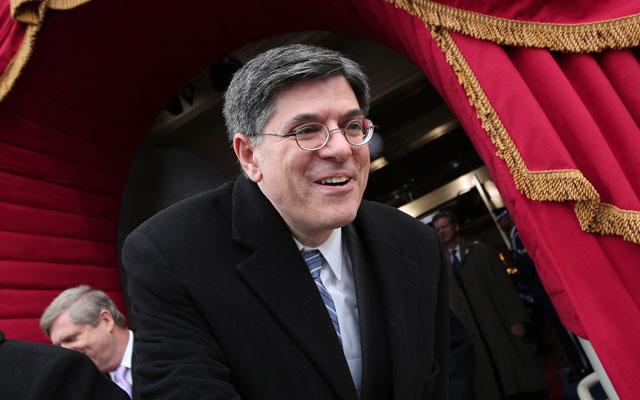U.S. Treasury Secretary Jack Lew suggested yesterday on NBC that “we have already done a lot of deficit reduction.”
In reality, government spending and debt are out of control and getting worse. Negligence in fixing the entitlement programs—which consume more than half of the U.S. budget already—has left them fiscally unsound and unsecure for current and future generations. That’s a nonpartisan truth that is evident to all who make even the slightest effort to look at the facts.
The Daily Signal depends on the support of readers like you. Donate now
But some in Washington prefer to look the other way. As The Washington Post writes in reaction to President Obama’s latest economic speeches tour:
[President Obama’s agenda is] a far cry from leveling with the public about the fact that Social Security, Medicare and the rest are crowding out other domestic priorities—including those that the president emphasized in his speeches—and that these programs are at the heart of the country’s long-term fiscal challenges, which have still not been addressed even as the deficit has declined in the short term.…
[President Obama is] indulging in his own evasions. As president, Mr. Obama is the one player in the capital’s drama best positioned to represent the national interest on entitlement reform; as a second-term president, he is also in the best position to take the political heat for doing so.
Without entitlement reforms, the red ink will continue until either enough lawmakers come to see the light or a debt-fueled economic crisis forces drastic action. That latter scenario is precisely what some lawmakers are pushing hard to avoid by demanding that spending reductions and reforms need to be included in any debt limit increase. Entitlement programs are growing on auto-pilot, and reaching the debt ceiling is one of the few wake-up calls for Congress and the President to correct the fiscal course.
When Standard and Poor’s downgraded the U.S. credit rating in 2011, the ratings agency clearly stated that the deficit-reduction measure Congress and the President agreed to fell far short of correcting the U.S. fiscal course. In short, Washington had kicked the can down the road again.
Washington further failed to provide much confidence to markets that spending growth, especially on entitlements, would be controlled any time soon, which could lead to further downgrades—meaning, we’re still on crisis course.
“We need to get the debt limit extended in a way that doesn’t create a crisis,” Lew said. There is a way to avoid a debt crisis in the future: rein in out-of-control spending and reform the entitlement programs today.






























